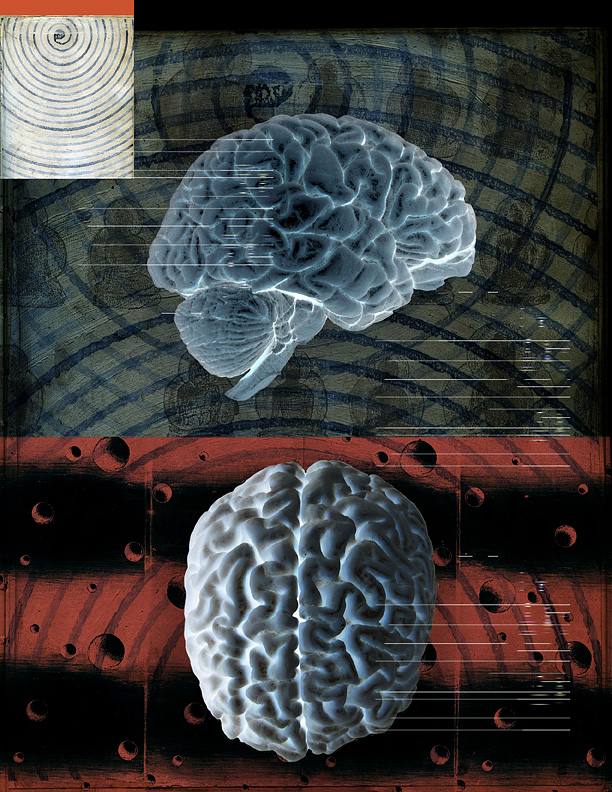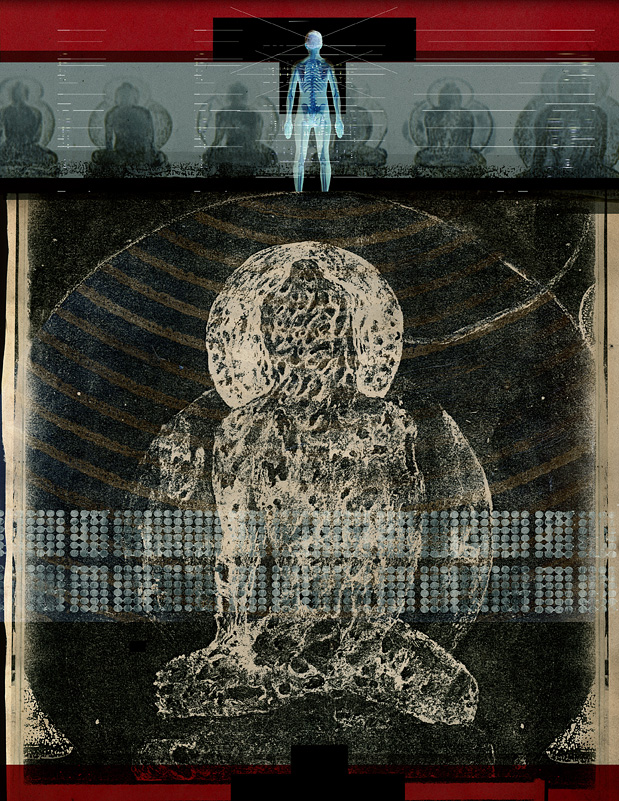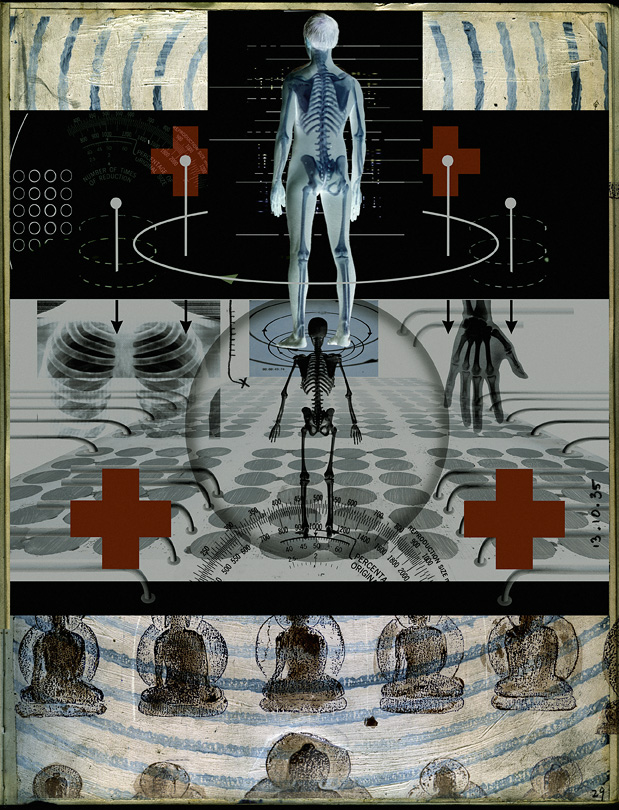Trans-humanism | Cyber Buddha
Art for Tricycle Magazine, summer 2010.
Is what we are born with enough or could we use a little help?
A conversation with Transhumanist James Hughes.


As a former Buddhist monk, Professor James Hughes
is concerned with realization. And as a Transhumanist—someone who believes that we will eventually merge with technology and transcend our human limitations—he endorses radical technological enhancements to humanity to help achieve it. He describes himself as an “agnostic Buddhist” trying to unite the European Enlightenment with Buddhist enlightenment.

Not squeamish about the prospect of enhancing—or, plainly put, overhauling— the human being, Hughes thinks our lives may be changed most by neurotechnologies—stimulant drugs, “smart” drugs, and psychoactive substances that suppress mental illness.
Hughes is a professor at Trinity College in Connecticut. He is also Executive Director of the Institute for Ethics in Emerging Technologies and leads the “Cyborg Buddha” project with two of the Institute’s board members, one of whom is a Zen priest. The project’s mission is to “promote discussion of the impact that neuroscience and emerging neurotechnologies will have on happiness, spirituality, cognitive liberty, moral behavior and the exploration of meditational and ecstatic states of mind.”

Are there dystopian possibilities? Sure. Early Transhumanists were naively Utopian, but few are anymore. The turning point came when a ‘blueprint’ of the 1918 influenza virus was put up on the Web. Most people now accept that new technologies bring catastrophic possibilities. Someone could make a terrible virus with a DNA printer and wipe us all out.
There will always be people with amoral goals. We can’t be naive. But it’s all a part of the tapestry of creating a just, responsible world order that can deal with the presence of greed, hatred, and ignorance. Then we can try to reduce it and make it a slightly happier world for everybody.
